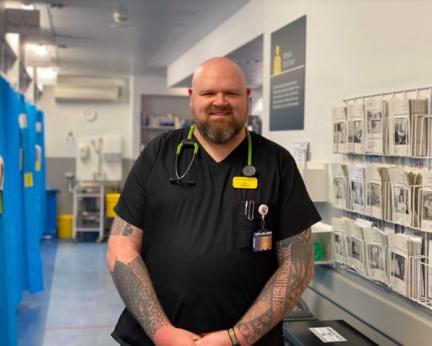Three years after being a student paramedic with the London Ambulance Service, I qualified as a paramedic and worked in various roles. Having been heavily influenced by my mentors towards the role of an emergency care practitioner, I self-funded a BSc in health care practice at St George’s, University of London in 2014.
I left the ambulance service to develop clinically with the goal of working in an emergency department (ED). However, with no hospital experience, and not being a registered nurse, it took a further three years to achieve this goal. I worked in urgent care centres, minor injury units, GP surgeries, NHS 111 and out-of-hours clinics to get varied experience until I became an emergency practitioner at Bristol Royal Infirmary.
The advanced clinical practitioner (ACP) role in ED was in its infancy in the department, but it was the role I really wanted. I spent the next two years preparing for it, mixing clinical experience and academic progression. During this time, I took on an additional part time role as the education lead for nurses.
In 2019, I was given the opportunity of becoming a trainee ACP and starting the MSc degree apprenticeship in advanced clinical practice at University of the West of England. Over the past decade, my clinical progression has been influenced by my drive to always be the best clinician I can be.





